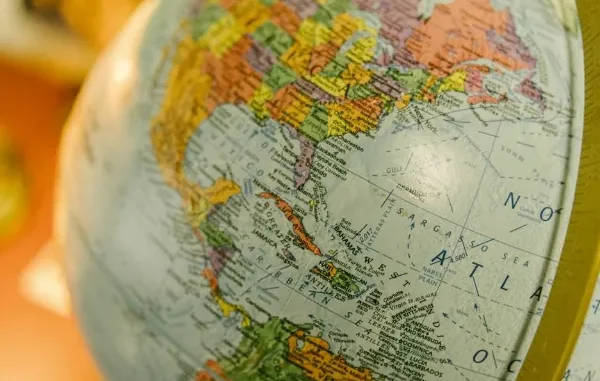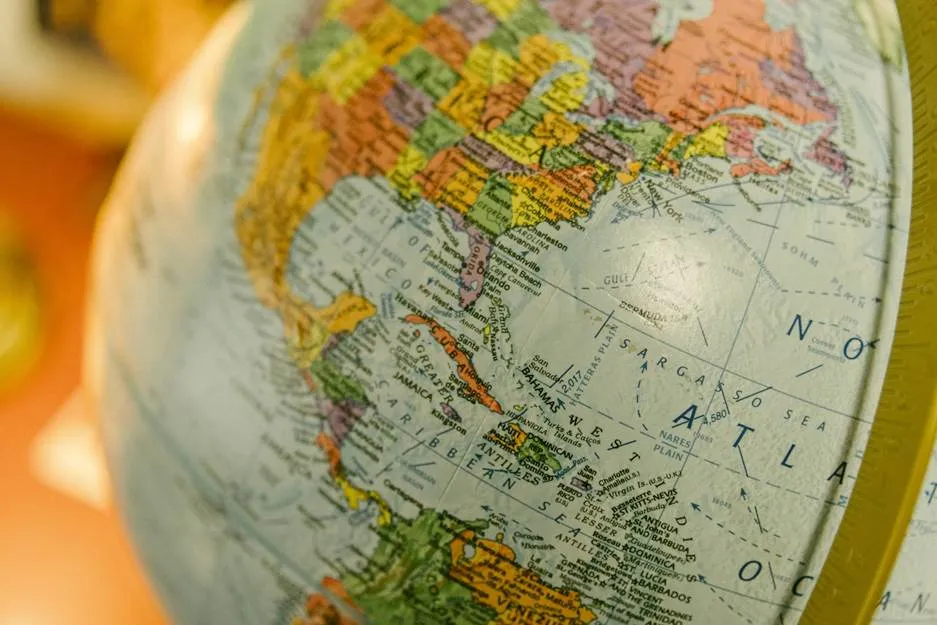

Globe of north america shows countries. photo – Free Cuba Image on Unsplash
Online gambling is easy to reach, but the rules behind it are anything but consistent. One country might treat it as something that can be managed with licences and careful monitoring. Another might allow only a narrow set of tightly controlled services, or decide it is safer to block the entire sector. The contrast does not come from the technology. It comes from each country’s own priorities, its ability to regulate, and the place gambling holds in its social fabric. When you look at the strict jurisdictions first and then shift to the more flexible ones, the unevenness in this global landscape becomes much easier to see.
Countries With the Strictest Online Gambling Rules
Some countries keep their online gambling rules tight, and Japan is one of the clearest examples. Only a small group of activities is allowed, mostly a few racing events and the national lottery. In 2025, regulators pushed their position even further by blocking offshore promotions and reinforcing the limits already in place.
Since licensed online casino platforms do not exist inside Japan, people who want to understand how online gambling works often turn to offshore information sources instead. In these situations, people often turn to offshore reviews of casino platforms. These mention things like anonymity, how quickly payments move, the use of cryptocurrency, and limits such as English-only support or the absence of yen compatibility (source: https://www.pokerscout.com/jp/reviews/coinpoker/). This shows how regulation can redirect player behaviour when there are no licensed platforms available locally.
Other strict jurisdictions follow a similar pattern. South Korea restricts most online casino activity and works with service providers to prevent access to foreign operators. Ethiopia provides one example in Africa where online gambling is not part of the authorised range of activities, and penalties remain in place for unapproved digital betting.
When governments keep this kind of system in place, they usually talk about the pressures they are under. There are health worries in the background, concerns about how secure online systems really are, and then the practical limits of the regulators themselves. Taken together, those pressures make it easier for the rules to stay mostly unchanged.
Countries With More Flexible Online Gambling Systems
In other places, the approach is more open, and governments focus on managing the activity instead of shutting it down. They use licences, routine checks, and a handful of safeguards to keep online gambling moving inside a system they can watch. The United Kingdom is one of the most well-known examples. Online casinos, betting platforms, and poker sites operate legally as long as they verify player identities, provide deposit limits, and follow advertising rules designed to protect at-risk groups.
The United States takes a mixed approach, and the rules shift as you move from one state to another. New Jersey, Michigan, and Pennsylvania have fully regulated online casino markets, but once you start moving into other states, the rules shift. Some states stop at sports betting or online poker, and a few step back from the whole sector. Once you place them side by side, the influence of local politics and culture becomes obvious, even within a single national setup.
Several governments integrate online gambling into their wider digital economies. Malta has developed an open licensing system that aims to attract operators while maintaining compliance standards. The Philippines licenses offshore gaming companies that serve foreign markets while regulating domestic betting separately. Singapore keeps online gambling limited to state-approved operators, yet it continues to build out a larger digital and blockchain ecosystem. That mix of caution and innovation explains why the country leans toward control rather than outright bans. South Africa shows a similar balance on its own terms. It allows licensed online sports betting and keeps a close eye on advertising, payments, and responsible gambling measures so the activity stays within a supervised space. Online casinos remain restricted, but the system shows how countries can regulate selected forms of digital gambling without fully opening the sector.
Why These Differences Exist
Online gambling may be global, but every country handles it in its own way. Much of that comes down to how governments read the risks. If they think it could affect public health or create financial pressure, they tend to hold things tightly.
Money plays a part. Some governments focus on the jobs and tax revenue that online gambling can support, while others look at the same numbers and decide the returns are not strong enough to change their current rules.
Culture shapes this, too. In places where gambling carries moral weight, access stays limited. Where it is seen more as entertainment, regulation becomes the tool of choice, which is why Asian markets often look stricter than parts of Europe.
Capacity matters as well. Running a safe online system takes solid verification, steady monitoring, and enough staff to keep operators in check. Countries with those tools are more open to licensing. Those without them usually prefer a narrower setup.






Leave a Reply